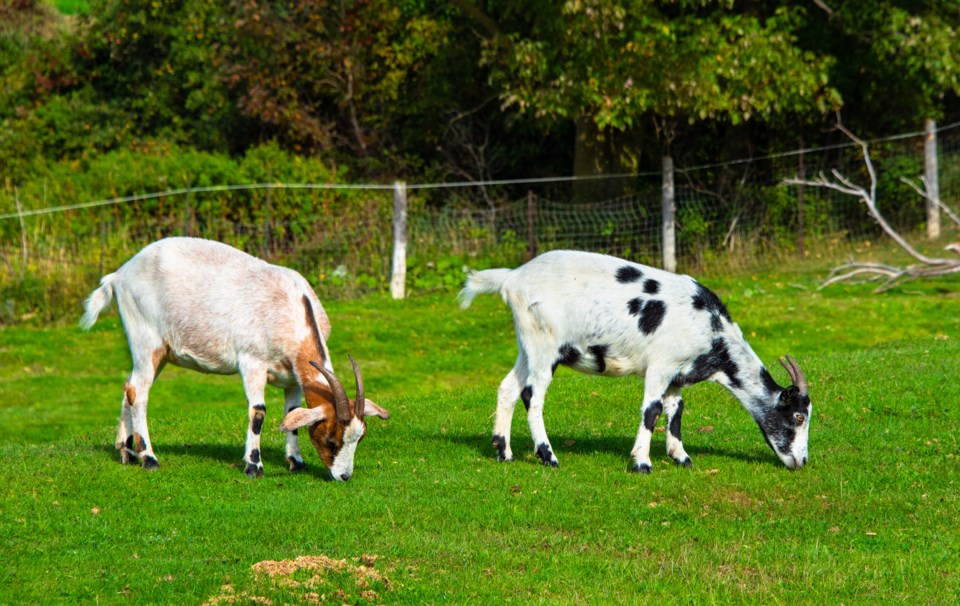A Proctor, B.C. woman won't be getting her goats back after the SPCA seized them.
Two pregnant goats — Lenoira and Daylight — were seized from Leila Martin's property outside Nelson in February 2023. They've since birthed four kids.
Martin was appealing a British Columbia Farm Industry Review Board decision that found her incapable of caring for the animals. A panel upheld the seizure.
"The panel has little difficulty in finding that the animals, in this case, were both in some measure of ongoing distress at the time of seizure and faced a significant risk of falling into more serious distress if the society had not proceeded with the seizure," the decision said.
"The animals were deprived of proper nutrition, sufficient water, and veterinary care, and their physical environment was both hazardous and unsanitary," it said.
To return the animals, the said, would expose them to further distress.
"The society is permitted to keep the animals and, in its discretion, destroy, sell or otherwise dispose of the animals," panel member David Zinhelt said in the decision.
The situation with Martin's goats — Lenoria and Daylight, as well as a third goat named Jack — came to the SPCA's attention in November 2022 when it received a call of concern.
"The complainant alleged that the appellant was attempting to castrate the male goat in an inappropriate manner," the decision said. "The complainant also expressed concerns regarding the shelter provided to the goats and stated that the two female goats were pregnant."
SPCA officers visited the property several times and found accumulated animal waste, a lack of proper water availability and poor bedding.
"Jack was observed with a red string tied around his scrotum," the decision said. "The appellant claimed this was not meant to castrate him but to 'restrict blood flow and curb his hormones,'" the decision said.
The officer asked the string be removed immediately and that the male be separated from the females.
Martin was also told to increase the amount of water available.
The officer returned several times and again noted water and other issues.
On Jan. 20, the SPCA received a complaint that Jack had been killed after Martin "had forced the goat to drink linseed oil, and that she had then skinned the goat with the intention of eating it and making clothing from its hide."
Martin said she had found Jack with a broken neck and waited two hours before deciding what to do.
"She stated that she had considered chopping the goat's head off but instead had poured olive oil down its throat," the decision said. "The appellant claimed that the goat had coughed once, had gone limp, and after 30 seconds, his eyes had gone blank. However, the appellant also stated that the goat continued breathing for another two hours before it finally passed."
On Feb. 6, the SPCA officer received information that Martin had been hospitalized three days earlier.
The decision said that, before entering the hospital, Martin had dismantled the animals' shelter, rendering it inadequate.
"Additional concerns were noted for the two female goats remaining on the Property, as well as their expected offspring, including a lack of consistent care, a lack of consistent provision of water, and dangerous objects in the animals' environment," the decision said.
The next day, a warrant was executed, and the distressed animals were seized.
The decision said the officer noted "that the animals did not have access to adequate food, their living area was unsanitary, they had no access to bedding, and there were hazardous materials such as scrap metal, piled up wood, and nails sticking out of the ground."
Officers also found Jack's body on a hiking trail near the property.
"The goat's spine appeared to be intact, and the goat had been skinned," the decision said.
The board also found Martin's original $10,000 fine for the proper care of the two pregnant goats before and after giving birth, along with the costs associated with caring for their newborn kids, was entirely justified.



